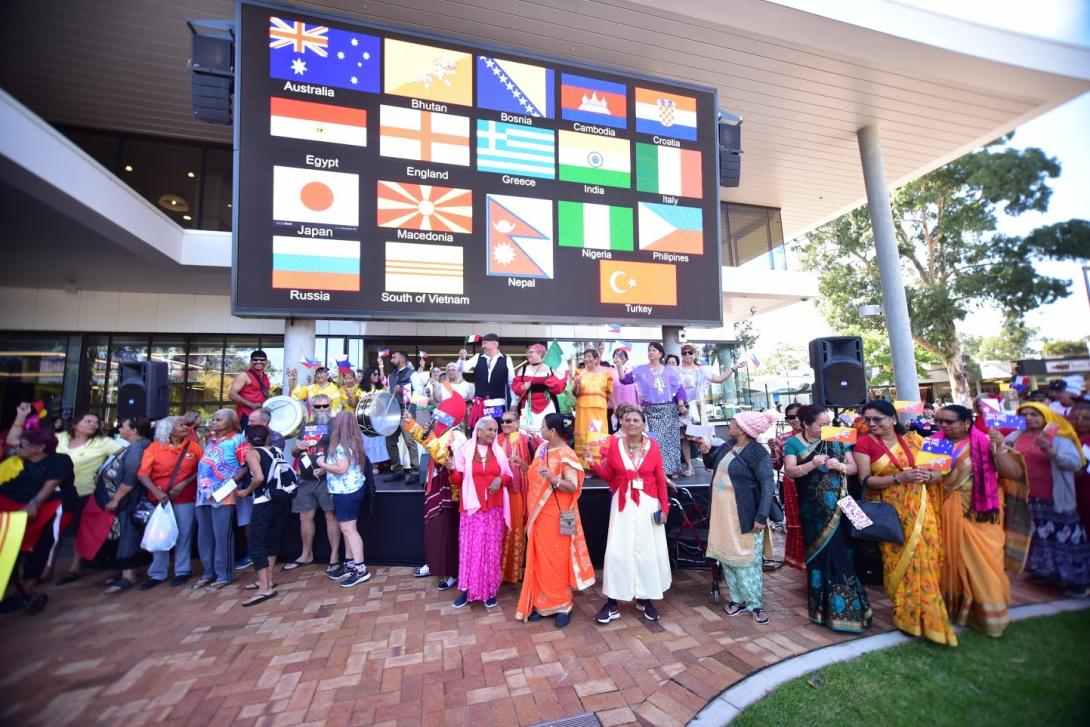City of Salisbury, SA
Cohesive Salisbury Project

The Project
City of Salisbury (CoS) wins two strategic plans: Intercultural Strategic Plan (ISP) and Ability Inclusion Strategic Plan (AISP) for the ‘Cohesive Communities’ award. These strategies are built on Salisbury’s proud and extensive history of community inclusion.
ISP
Salisbury is the first Intercultural City in South Australia. Interculturalism moves beyond multiculturalism to create meaningful dialogue and understanding amongst diverse cultural groups. This ISP responded to a community identified need for interculturalism and the need to meaningfully integrate beyond individual cultural backgrounds to feel at home in Salisbury. A contemporary strategy was needed to overcome barriers of segregation that is not addressed by multiculturalism. Particularly with over 37 per cent of Salisbury’s population being born overseas, 75 per cent and more of refugees entering South Australia settle in Salisbury and approximately 50 per cent of social program participants are from culturally and linguistically diverse backgrounds.
This ISP has deepened and innovated council’s cultural inclusion.
- Council of Europe’s Intercultural Cities Index Membership achieving 76 per cent, second highest scoring Australian Intercultural city.
- Salisbury held South Australia’s largest interfaith blessing; establishing its Interfaith Network of 33 faith leaders.
- Salisbury Intercultural Strategic and Community Alliances established; advisory bodies of CaLD community and sector leaders to influence council decisions.
- Advocacy and promotion of ‘interculturalism’ contributing to its wider use (e.g. within SA Multicultural Bill 2021).
- Rich calendar of cultural events (e.g. Harmony Week attracting 1,000s) and training for staff, volunteers and community to celebrate and deepen understanding of diversity (e.g. name-bias training).
- Widely recognised innovative and culturally safe services (e.g. Morella Community Centre).
AISP
The AISP has four repeatable foundations built on decades of commitment to disability inclusion, long before AISPs became legislatively required.
- Engagement: Disability Access and Inclusion Network (residents with disability/allies) engaged to shape decisions to improve council services, e.g. design input to Salisbury Community Hub resulting in Adult Change Facility.
- Universal design: Uniquely, council funds development of Universal Design Guidelines and learning programs, enabling their application to all council building developments, upgrades, communications, and educating private developers.
- Integrated planning: AISP is a ‘Critical Action’ under the City Plan 2035.
- Partnerships: people with disability co-designed 9 disability-led workshops building leadership, knowledge and skills resulting in ongoing peer networks (partnership with JFA Purple Orange).
The Award Category
This award recognises two specific outcomes:
Projects which seek to improve the lives of people with disability by driving a more inclusive approach to the design of policies, programs and infrastructure which:
- address barriers for people with disability, their families and their carers
- promote and facilitate participation of people with disability, their families and their carers
- promote or facilitate partnerships between government, business and communities that achieve improved access and
Projects that sustain and celebrate the cultural, linguistic and religious diversity of our society which:
- foster a sense of belonging, identity and shared values and promote civic rights and responsibilities
- encourage participation in the local community and develop innovative approaches to connecting the local community and building community harmony
- celebrate the cultural, linguistic and religious diversity of the community and foster an inclusive and respectful community.
Delivering community outcomes
Cohesive Communities add value to Australia and benefit our economy, health and wellbeing, society and education by:
- creating communities that everyone can belong to, identify with and contribute to equally
- increasing participation in local communities and building community harmony
- celebrating our differences, talents and fostering an inclusive and respectful community.